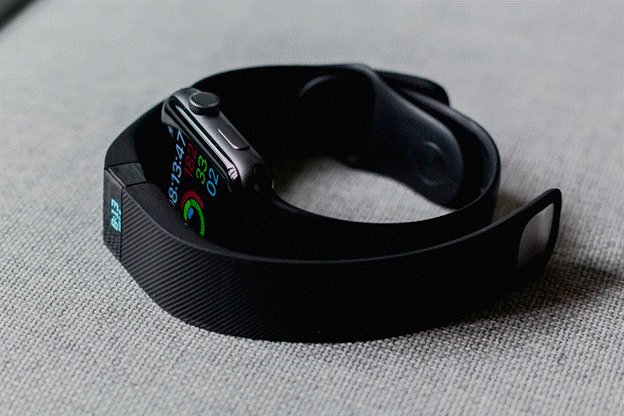Understanding EMF Radiation and Safe Levels for Humans: A Critical Look at the Dangers In today's…
Do Fitbits Cause Cancer?

Many people are concerned with being more healthy, and like to use tools to help them along the journey. But some have asked, “Do Fitbits cause cancer?” We’ll take a look at this health tool and give you the facts on whether or not you should be concerned.
What Is a Fitbit?
The Fitbit does a number of things to help someone with keeping up with their health. It measures things like:
- Hours slept
- Steps taken
- Date and time
- Caller ID
- Music control
- Calories burned
Of course, this all depends on the version you own.
How Does It Work?
The Fitbit uses complicated algorithms and sensors to compile the date you seek. For example, due to its altimeter sensor, it knows if you are climbing stairs or using an incline. For your total footsteps, the 3-axis accelerometer tracks this data. All of the data is then converted into the digital metrics once you wear the Fitbit.
Also Read: Materials Block Radio Waves
Fitbits and EMF Radiation
This electronic device has a few red flags when it comes to EMF radiation. For one, it uses Bluetooth technology, and this is one of the most concerning forms of EMF radiation. The other area of concern is the sensors inside. These produce electric currents, and that generates an electromagnetic field surrounding the Fitbit.
Do Fitbits Cause Cancer?
While the manufacturers claim there is no problem in wearing a Fitbit, you do have to keep in mind some of the issues. You are putting a radiation device on your body. Most people sleep in theirs in order to keep up with their sleep schedule. So not only is it on you 24-hours a day, it is also in close proximity to your body. And when it comes to EMF radiation, that’s not a good thing.
With RF radiation, this closeness is most important. Even more so than the amount of radiation. An example is that a device closer to someone is more dangerous than one with stronger exposure, but further away.
The Verdict
While we can’t tell you whether it causes cancer or not, you can be aware of the risks involved. A recent study revealed that EMF negatively impacts the body’s innate ability to produce melatonin. This is very important for keeping your sleep schedule on-track by regulating the sleep-wake cycle. The production of this hormone is influenced by the presence (and absence) of light.



